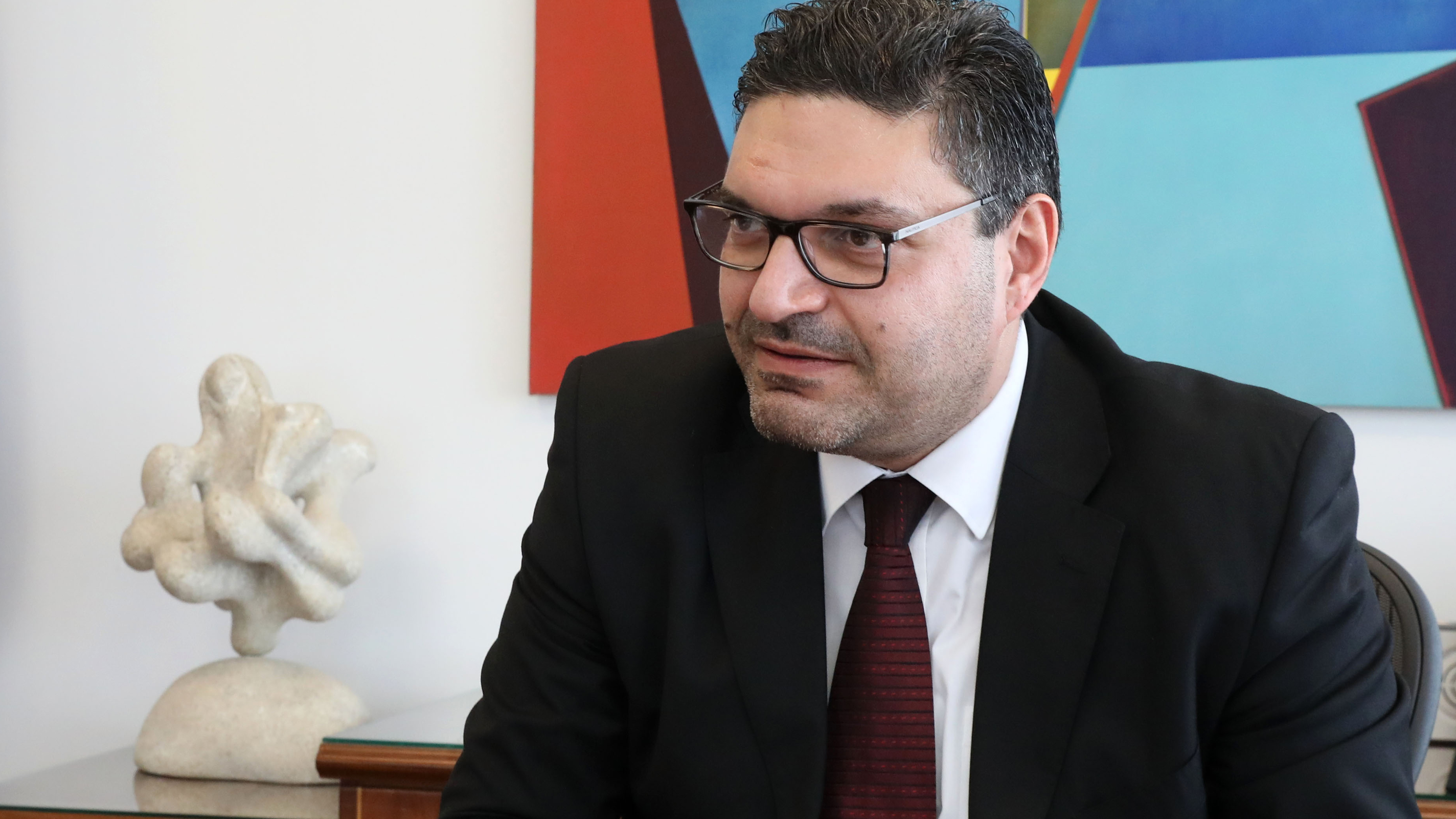
Cyprus’s finance minister talks to The Banker about how the country’s economy has coped during the pandemic and the recovery ahead. Burhan Khadbai reports.
Constantinos Petrides took over as Cyprus’s minister of finance in December 2019, just a few months before the onset of the Covid-19 pandemic. He shares his thoughts on how the country’s economy has held up during the pandemic, its green and digital transition, and the state of the banking sector.
Q: How has Cyprus’s economy coped during the pandemic?
A: After the crisis of 2013, we corrected our fiscal deficits. We had fiscal surpluses and a growth rate above the EU average, so we entered the pandemic well prepared. Quite remarkably, the recession in Cyprus in 2020 was equal to just 5.5% of gross domestic product (GDP), which was much lower than the other tourist and Mediterranean countries.
The proportion of the tourism sector to GDP in Cyprus has been gradually reducing as we diversify into other industries. It still represents about 12% of GDP and it was one of the major recipients of our fiscal package during the pandemic; there were no bankruptcies in the tourism sector. We were concerned there would be an increase in non-performing loans (NPLs) in the sector, but that hasn’t happened.
The performance of the economy in 2020 and 2021 was much better than we and the EU had expected, and we hope to continue on this positive trajectory
In 2021, we expect the growth rate to be more than 6% and Cyprus will be one of the EU countries that has regained 2020’s lost GDP in 2021. We are quite pleased with how things are going. The performance of the economy in 2020 and 2021 was much better than we and the EU had expected, and we hope to continue on this positive trajectory.
Q: How will you use the funding from the NextGenerationEU package to support the economic recovery?
A: Cyprus will be the recipient of more than €1bn in grants to be invested over the next four years. The assessment by the EU was that we have one of the best programmes.
We will invest heavily in the green and digital transition, with 40% of the investments going towards green projects, such as renewables and helping households increase their energy efficiency. More than 20% of the investments by the Recovery and Resilience Facility (RRF) will go towards digitalisation. Cyprus has been lagging behind in the transition to the digital era; however, we have recently established a new ministry for the digital transition and we have a good action plan to increase our digital offering. For example, we have started to use digital signatures in not just the private sector, but also in the public sector.
The potential impact of the RRF in the medium term will be adding 7% to our GDP, and 15–16% by 2030.
Q: Do Cyprus’s banks still pose a risk for the economy?
A: The risk is much lower. The banking sector in Cyprus is now just 2.8-times the size of GDP, but in 2013–2014 it was seven times the size of GDP. The size of NPLs have also come down by more than 80%. In 2020 alone, NPLs went from €9bn to €4.5bn. It’s still a little higher than the EU average, but in regards to capital adequacy, banks are very well capitalised and the capitalisation rate is actually above the EU average. Yes, there were profitability issues in 2020 and losses due to the pandemic, but, in 2021, banks rebounded well with the repayment of loans.
We have a plan to address the NPL issue by creating a state-managed asset management company to buy NPLs directly from banks, which we are in discussions with the EU about. This asset management company would mainly buy mortgage and small and medium-sized enterprise NPLs from banks and then offer social-housing schemes, such as mortgage-to-rent programmes. The total size of the portfolio of NPLs by the asset management company will between €1bn and €1.5bn, which is around one-third of the total NPLs.
Q: What are the big challenges ahead?
A: The main challenge was the pandemic, but for the Ministry of Finance, that is not the main challenge anymore. We are exiting the pandemic with one of the lowest number of deaths in the EU.
The first challenge is inflation, which is an issue all over the world — especially in the US. The second challenge is keeping the economy on a path of long-term growth by implementing the correct structural reforms, including the RRF. The third challenge is the social and economic risks from illegal immigration in Cyprus, mainly from sub-Saharan African countries.


